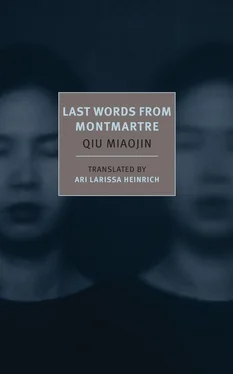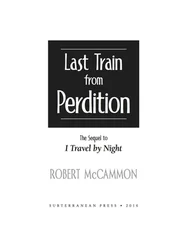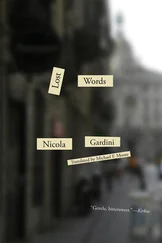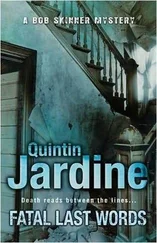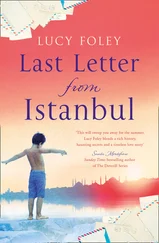But as she tested the boundaries between fiction, literary autobiography, and lived practice, the line between life and art grew increasingly indistinguishable for Qiu, and her “narrator” began to spiral. Entries from Qiu’s actual diaries, which were published in Taiwan in two volumes in 2007, circle in on themselves, complicating the pathology in Last Words from Montmartre .
June 12, 1995: I must vanquish my own interiority. I want to vanquish myself. If not there is only death. / Death sleeps by my pillow each day. Each day for me is an opportunity for death. / I must vanquish my own interiority and quit the mountain peaks I wish to quit. / God, let me distance myself from those things which harm me, or I’ll be killed….
Nearing the end, she seemed a graphomaniac, producing not just the manuscript for Last Words from Montmartre and the cryptic journal entries written in rows of careful script but scraps of poems, fragments of ideas, and countless letters home. Friends and family abroad began to worry. For a Taiwanese graduate student living on a budget in Europe in the mid-1990s, there were only phone cards and care packages and the long, slow intervals between written letters.
Qiu’s suicide set off much debate in the Taiwanese media and literary circles. Did she kill herself for love? For art? Here it’s important for readers of this volume in English to remember that in East Asian societies, suicide has a different range of cultural meanings distinct from the familiar pathologized, criminalized, or theologically proscribed models in the West. Without going into too much detail, which could easily fill another book, suffice it to say that explaining her death purely in terms of failed romance or of underlying psychiatric problems — especially when her suicide was so deliberate, and so deliberately documented — would be a mistake. In the end we should try to understand Qiu’s death as she wanted it to be understood: as a kind of speech act, as the ultimate means of sealing the connection between art and life. Precedents for this kind of suicide place Qiu squarely in the lineage of her idols Osamu Dazai (1909–1948), who killed himself shortly after finishing his experimental novel No Longer Human (1948), and of course Yukio Mishima (1925–1970), who committed seppuku, leaving behind a manuscript with instructions to publish it.
LAST WORDS FROM MONTMARTRE
It’ll be operatic, melodramatic, prophetic, proscriptive, manic. It’ll be about everything, everything I would leave behind if I were writing a suicide note.
Which I’m not, I don’t think.
— Anna Joy Springer, The Vicious Red Relic, Love
Readers from quite divergent backgrounds can appreciate the familiar structure of a coming-of-age story, told from the inside out, that deals with issues of sexual awakening, alienation, loss, and love. Last Words from Montmartre initially caught my attention because, like Qiu, I was a queer person of the same generation who had overlapped with her as a graduate student in Paris and Taipei (though we never met). I soon discovered that the power of the writing described an inner conflict that transcended the confines of identity politics, gender, race, nation, and age. As the prominent Chinese dissident Wang Dan comments in his essay “The Extremes of Life and Love: Rereading Last Words from Montmartre ,”
When you are in dire straits — weak, distraught, about to crack — you don’t want anyone to see you. But at the same time you want someone to confide in. At times like this, often only writing will do. Though it’s not face-to-face, only through writing can one have the kind of heart-to-heart exchange needed to endure the most difficult of times…. I felt a secret intimacy with Qiu Miaojin from the first page.
Besides painting a portrait of an individual artist or writer, autobiography can sometimes capture a snapshot of a unique, collective emotional truth or zeitgeist where history and even fiction fail. Last Words is such a fictionalized artifact: The book captures an important moment in global queer literary culture of the mid-1990s that the existing language of postmodernism was still unable to describe, an odd moment somewhere between AIDS and the Internet that led both Qiu and me — and many other writers, punks, intellectuals, queers — on parallel journeys, both actual and metaphysical, from the dyke bars of Taipei to the cinemas of Paris (or from San Francisco to Prague, or from London to Tokyo), in search of a way to make sense of a world that had already begun its modest shifts and tremors toward new modes of communication, new ways of being.
But more than its intimate voice, its archetypal themes, and its ability to capture the elusive concerns of a transitional generation, Last Words is very much a “trans-cultural product,” one that reaches past the linguistic and thematic limits often imposed on modern Chinese literature, both from outside and from within, or what the scholar C.T. Hsia once famously complained, perhaps unfairly, was a literature encumbered by an “obsession with China.” Although Qiu was celebrated in Taiwan as a national prodigy, she saw herself as part of an international community of writers and artists both living and dead and, crucially, as part of a community unconstrained by conventional labels and categories such as “lesbian,” “Chinese,” or even “woman.” Like the Japanese and French writers she revered, Qiu saw herself in dialogue with “classic,” albeit mostly avant-garde, world art and literature.
None of this makes for a particularly light read. Relentlessly dark, with scattered moments of exuberance and humor, Last Words tells in a testimonial or confessional mode the story of the demise of a relationship between two women, and ultimately the unraveling of the narrator, in a voice that veers from self-deprecation to hubris, compulsive repetition to sublime reflection, reticence to vulnerability. The body of the text consists primarily of a series of letters, presented like chapters, from the author/narrator in Paris to her lover in Taipei and to family and friends in Taiwan and in Tokyo, opening with the death of a beloved pet rabbit and closing with a portentous expression of the narrator’s resolve to kill herself. We follow Qiu’s fictional narrator along the streets of Montmartre, read her descriptions of affairs with both men and women, French and Taiwanese, as well as her ecstatic musings on literature and art. She gives wrenching and clear-eyed outlines of what it means to exist not only between cultures but, to a certain extent, between genders. Readers may notice the book’s unique textuality or materiality. From the perspective of our quickly evolving digital age, there is a distinctly “slow tech” or analogue feel to the book. The narrative is densely populated with letters and stamps and stationary, phone booths, notebooks, handwritten cards, notes, messages, missing envelopes, photographs, tapes, documentary or material evidence of literary production and old-school communication. Yet even as Last Words draws repeated attention to its own textuality, one of its key innovations is actually its unique style, indeed its outright refusal of traditional formal textual structures. From its opening page Qiu’s book radically rejects a linear narrative and challenges readers in an epigraph to read the chapters in any order. The chapters themselves are broken up by a mix of quotes and epigraphs ranging from the existentialist philosopher Gabriel Marcel to the lyrics of “Fools Rush In.” In some chapters the narrator appears to be female, in others male, in still others, neither (the figure of Zoë is deliberately ambiguous through the story). In other chapters it’s not even clear who the narrator is. As much as the novel is framed as a kind of a suicide note, for us looking back on the eve of the age of the Internet, it is also a kind of farewell to letters.
Читать дальше
